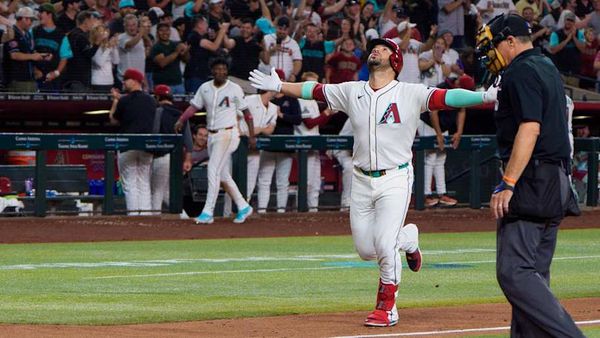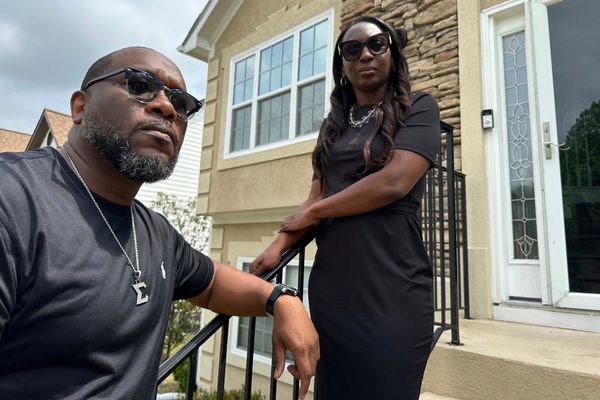We will all talk today about the winning Bill Russell did in basketball, because he is the greatest winner team sports in America has ever produced. We will talk, and rightly so, righteously so, about back-to-back NCAA championships the tall, skinny kid from McClymonds High in Oakland won at the University of San Francisco, and the gold medal he won for his country in the Olympics, and then the 11 NBA championships he won with the Celtics in 13 years, the last two as a player/coach, which means a Black coach in Boston in the 1960s.
Of course we will talk about the 10-0 record he had in the Game 7s he played in his extraordinary NBA life. We lost all that on Sunday when we learned that William Felton Russell had passed away at the age of 88. And lost as much of a giant as sports has ever known. You know who the Greatest Generation was in pro basketball? He was.
We lost more than that, though, more than the center for the Celtics who did all that winning, and did it in a time when he played a total of 143 games against Wilt Chamberlain, who was bigger and stronger than Russell because he was bigger and stronger than anybody. We lost a truly great American on Sunday, one who led a proud and eloquent and occasionally defiant American life; one who marched with the Rev. Martin Luther King, Jr., and who spoke out against racism and injustice when far too many athletes did not, especially in the 50s and 60s.
Put it another way: Everything we want athletes to be in this time in America, Bill Russell always was.
Bill Russell spoke constantly and tirelessly to a better and more just and more fair America, even while being the center – and centerpiece – on the best basketball team to ever play professional basketball, the one coached by Red Auerbach until Russell coached it after Red retired.
Later in his life, he would ask Auerbach one time if he had any advice about growing old.
“Yeah,” the old man growled. “Don’t fall.”
Bill Russell never fell. And when Red was gone from the Celtics bench, no longer lighting up victory cigars, Bill Russell rose up one last time and so did his team, and won two more titles.
I met him the first time when I was in high school. The Celtics held a practice one day, for some forgotten reason, at my high school, Bishop Guertin, in Nashua, N.H. My father took me over and introduced me to Bill Russell. When I reached up with a hand that disappeared into his, feeling as if I was reaching for the top of the gym, he asked me what I wanted to be. When I hesitated, mostly because I was tongue-tied, he smiled and said, “Whatever it is, you just be brave, young man.”
He was brave. He was as much an heir to Jackie Robinson as anybody our sports have ever produced. He refused to be run out of the neighborhood in which he’d bought a house in Reading, Mass. even after he and his family came back from a trip and found “N---a” written inside on the walls and feces on his bed. He called out Boston as a racist city at the time when the Boston school committee had segregated its schools. He declined an offer from the Rev. King to be on the stage with him when he gave his “I Have a Dream” speech, choosing to sit in the second row instead.
In his book, “Go Up For Glory,” written with William Mcsweeny, he wrote this in the foreword:
“I have worked for money and I have made large sums of it. But I have never worshipped money. I have worshipped little and fought only for the rights of man, all men, all races and religions.”
Later Russell writes this in the foreword for the 2020 edition of that book:
“If someone asked me to write an epitaph, I would keep it simple:
‘Bill Russell. He was a man.’”
In so many ways, in all the important ways, he towered above everything, above his sport, about all the unrest and protest of the 1960s, in Boston and everywhere else in the country. There have been so many times in our recent past when we have urged and sometimes begged our athletes to use their names and the platform that their talent and fame give them and make a stand on social justice, or take the kind of knee that Colin Kaepernick did. No one ever had to beg Bill Russell to speak up or stand up. It was in his DNA, the same as all the winning was.
He once said this of his dear Oakland friend, Joe Morgan, the Hall of Fame second baseball: “Isn’t it funny how good teams seem to follow Joe around.” It was even more than that with Russell. Greatness followed him around, from McClymonds on, and later followed him to the front lines on all the big things in America.
On the final day of Black History Month three years ago, there he was on Twitter, wearing a No. 7 jersey, Colin Kaepernick’s number, with “#IMwithKap” written above it. The old man was smiling. He didn’t sit out Kaepernick’s fight because he hadn’t sat out any kind of fight like this for more than 60 years.
Russell wrote something else in “Go Up For Glory”:
“It is a story that can be read in three levels.
“The story of an American.
“The story of a Negro.
“The story of a professional basketball player.
“At each level, I can only say these are straightforward truths. Regardless of how it does, there will never be alibis.”
There never were, on the court or off. But then he is one of those rare athletes, one of the rare gifts from sports, who seemed to matter just as much when the game was over, the way his friend Muhammad Ali did, the way Billie Jean King did, the way Jackie Robinson did.
Bill Russell. Man.







